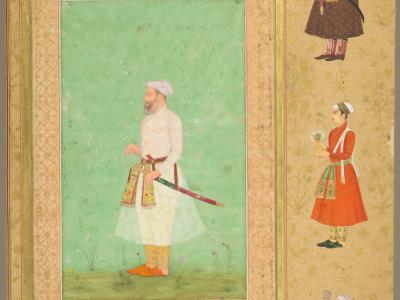
An IASH Work-in-Progress seminar, delivered by Dr Sonia Wigh (Postdoctoral Fellow 2021-22; University of Exeter):
Dainty Bodies, Woolly Chests: Attitudes Towards Hair and Gender in Early Modern North India
In early modern north India, many outward signs in a man’s physical form came to be associated with manliness, even virility. Hair became a physiological attribute intrinsic to the construction of masculinity as well as a qualitative marker for (non)-ideal men. Concomitantly, facial hair, or lack thereof, started to became a physical manifestation of political difference. Shaving off the hair of political rivals symbolized loss of pride as well as great disgrace to them. This paper explores how bodily hair became an external characteristic associated with heat, maturity, pride and higher intellect.
Medically, women with ‘hotter constitutions’ exhibited more bodily and facial hair, and were supposed to be ‘oddities’, comparable to men or hermaphrodites. On the other hand, Persian poetry celebrated the downy glow of light facial hair (sabza-i khatt) or (nawkhatt) on the cheeks of the young beloved. By critically examining literary compositions, manuals of courtly conduct, medical texts, and visual representations, this paper will comment upon the multitude of attitudes towards bodily and facial hair, as well as their connection with the making of early modern South Asian gendered identities.
Please click the link below to join the webinar:
https://ed-ac-uk.zoom.us/j/81322391722
Passcode: Vr8f3ew2
